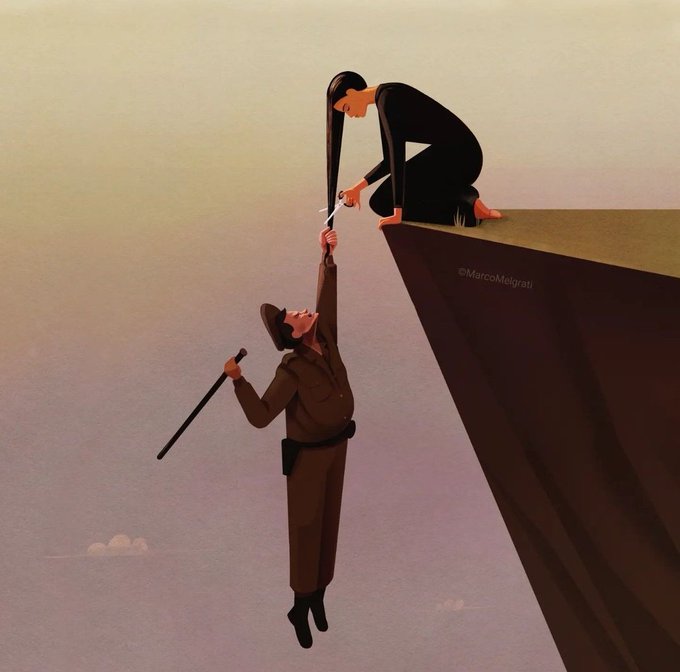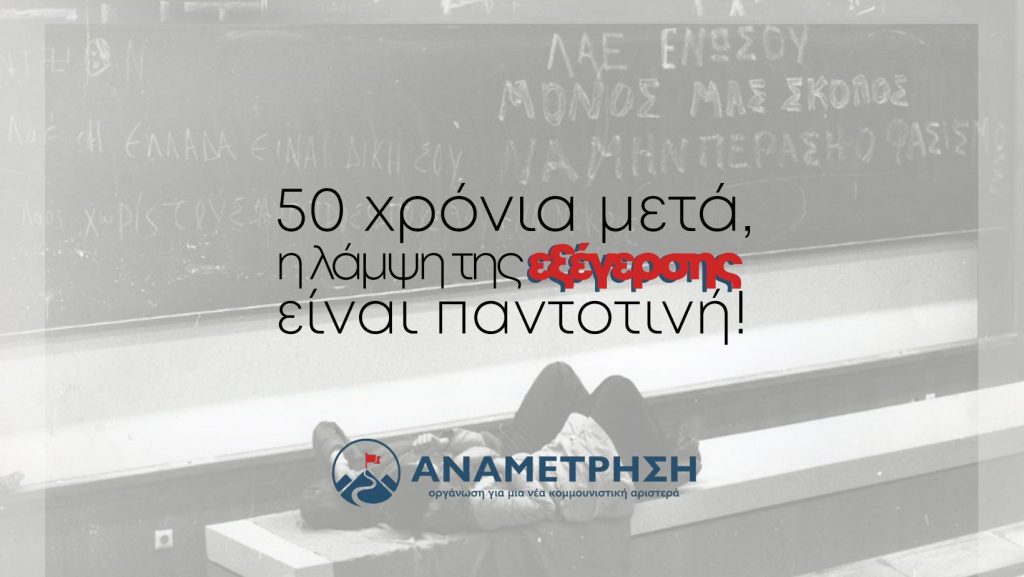Mahsa Amini, a 22-year-old girl, was visiting the capital city Tehran with her family when she was arrested for not wearing “properly” her hijab, the head cover the Iranian regime has made obligatory for women. Two hours later she got into a coma and died three days later. She has now become a symbol of Iranian women’s struggle against oppression and of the revolt of the people of Iran against the regime. With Mahsa’s murder, Homeini’s oppressive state has chosen to set an example for women, girls and the LGBTQI+ community, which has already begun to break the silence and publicly confront patriarchy and religious oppression in the last few years.
Thousands of women, men, young people, workers and minorities who flood the streets these last days, risk everything. The demands for human rights meet the ones for social change. Iran has been going through great popular struggles and rebellions, resulting in hundreds of people killed since 2017, in the background of economic sanctions and state measures imposed on the country, bringing poverty and excessive inequality. However, the theocratic regime has managed to get out of the crisis stronger.
Our support and solidarity to anyone who chooses to go out on the streets and risk their lives to replace poverty and oppression with democracy and freedom should be full and unconditional. The complex geopolitical conditions in the broader region should not stand in the way of condemning the Iranian theocratic regime or supporting people’s rebellion in Iran. Respectively, there is a need for a distinction between the struggling part of the Iranian people that have shaped progressive characteristics, and the reactionary, socially and politically conservative part of the society that has lately been organising counter-demonstrations condemning the demonstrators as enemies of Islam and agents of imperialism.
These days, as women and men in Iran battle for a better future under state terrorism and repression, the emancipatory movements around the world owe their unlimited solidarity. They also owe to declare their firm opposition against foreign intervention in the internal affairs of a country for geopolitical gains under the hypocritical pretence of defending democracy and human rights. We support the non-negotiable right of women to bodily autonomy, to choose whether to wear a hijab or not. We know well that what oppresses women and LGBTQI+ people in every part of the world is the patriarchal structure of the societies and the multifaceted control over their bodies, also encouraged by the relevant religious authorities.
We call for every possible support for the struggle of women in Iran.
With the women of Iran!
Zhen Zhian Azadi*
*Woman Life Freedom
International Affairs Section of Anametrisi
Gender and Feminism Section of Anametrisi









